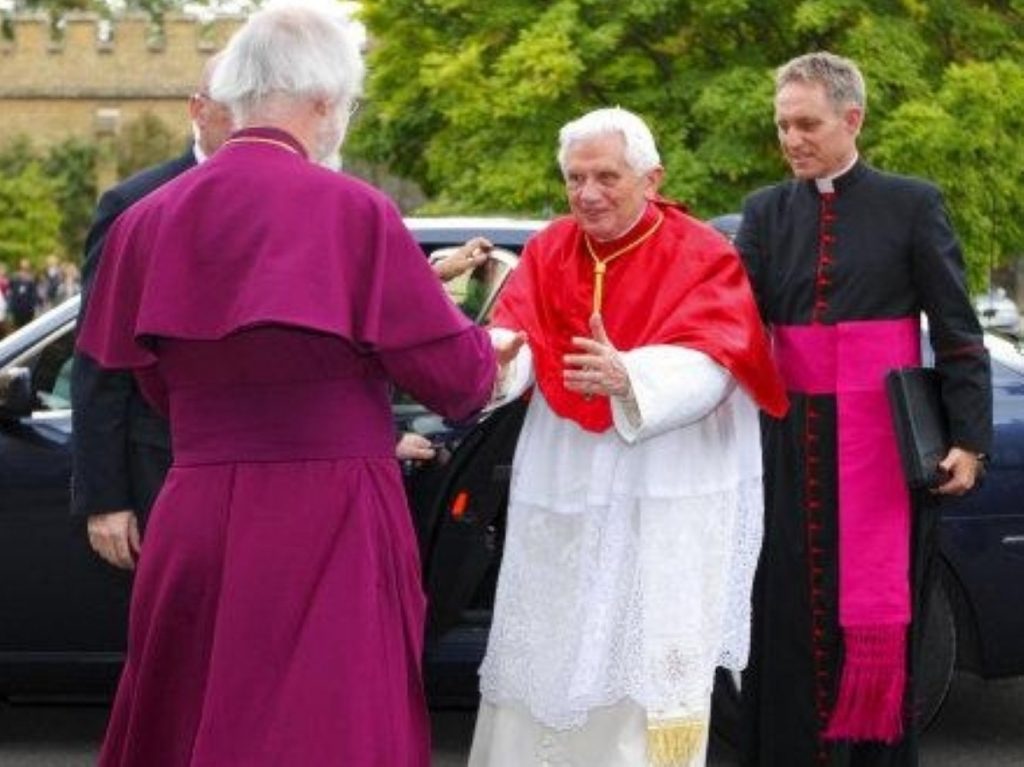Aid money bankrolled papal visit
Pope Benedict XVI’s official visit to Britain last September was partly funded by money meant to be spent on international aid, it has emerged.
MPs analysing the Department for International Development’s (DfID) accounts said they were surprised to notice that £1.85 million had been transferred to the Foreign Office for the papal visit.
They are demanding an explanation from ministers about what the money was spent on and how this was compliant with rules governing what overseas development aid money should be spent on.


Malcolm Bruce, chair of the Commons’ international development committee, told politics.co.uk he thought many people would be surprised by the news that UK aid money was used to fund the Pope’s visit.
“I’m finding it extremely difficult to see how paying for the visit of the Pope from Rome to the United Kingdom as overseas development assistance (ODA) which is aimed at delivering the poorest people in the world out of poverty, that’s its prime objective,” he said.
DfID is slowly increasing the proportion of ODA money it spends but will still not be spending 90% by 2014/15, officials have admitted.
Foreign Office beneficiaries of the money in the 2010/11 year included £40 million for the British Council, £16.5 million for the ‘conflict prevention pool’ and £200,000 for police training in Tanzania.
Mr Bruce said DfID was entitled to spend every penny on ODA, but people would expect its funding to be “overwhelmingly focused” on aid money.
It has been suggested that some DfID money could be spent on propping up the BBC World Service, he added.
“People have mixed views about that, but it would be easier to see a case for that [than for funding the papal visit].”
Aid agencies Oxfam, Christian Aid and Cafod all declined to comment on the issue.
But Mr Bruce said the £1.85 million “does not really fit any criteria that could obviously be seen as ODA”.
“DFID was one of a number of government departments part funding the Pope’s visit to the UK,” a spokesperson said.
“Our contribution recognised the Catholic Church’s role as a major provider of health and education services in developing countries.
“This money does not constitute official development assistance and is therefore additional to the coalition government’s historic commitment to meet the 0.7% UN aid target from 2013.
His report flagged up concerns about establishing value-for-money when it came to aid spending in more fragile states.
DfID has pledged to focus more of its money on struggling countries, as part of a bid to demonstrate its protected budget is being well-spent.
Government departments face an average cut of 19% over the comprehensive spending review period, compared to a 37% increase for DfID.
“It’s perfectly right and proper the department wants to demonstrate the money is being spent in ways that measurably and identifiably take people out of poverty,” Mr Bruce continued.
“Some of it will be spent in ways which will be impossible to measure, and some spent in ways where returns will not be known for several years.
“The department have got to acknowledge that some will be harder to show than others.”
But Christian Aid’s head of policy, Alex Cobham, backed the stand taken by MPs.
“The committee is right to highlight the potential contradiction between value for money recorded as the immediate outputs of a given expenditure and value for money as defined by the ultimate contribution to development, which is a complex long-term process,” he commented.
“The real value for money to UK tax payers rests on the implementation of major structural changes in countries where aid is spent, not only on counting the number of mosquito nets distributed or the injections given.”#
A DfID spokesperson added: “The committee acknowledges that we are right to focus on conflict-ridden countries, home to some of the world’s poorest people.”

